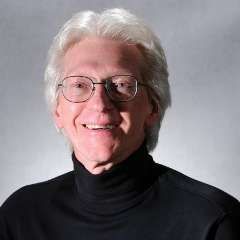Apollo's Fire is on a roll. The Cleveland-based Baroque ensemble play sold-out concerts at the BBC Proms and Snape Proms with soloist Alina Ibragimova this weekend, and will be at the Paesaggi Musicali Toscani festival in Italy next week (sans Ibragimova). Earlier this summer, the group made an impressive debut at a sold-out performance at Tanglewood, the summer home of the Boston Symphony. Even the ensembleʼs recordings are hot. Its recently released “Sugarloaf Mountain: An Appalachian Gathering” opened at No. 5 on Billboardʼs Classical Crossover chart.
To outsiders, a powerhouse period musical ensemble emerging from the industrial American heartland may seem incongruous. But the greater Cleveland area has a long-established reputation and tradition as a place of musical excellence, fostering the growth and development of the Cleveland Orchestra, the Cleveland Institute of Music, the Oberlin Conservatory and a wide diversity of other types of music. Itʼs no accident that the Rock and Roll Hall of Fame and Museum is located in Cleveland.
That said, credit for the rise of Apolloʼs Fire rests squarely with Jeannette Sorrell, the groupʼs founder, conductor and harpsichordist. Winner of both the First Prize and Audience Choice awards at the 1991 Spivey International Harpsichord competition, Sorrell founded her ensemble the following year with an eye toward making early music accessible to a wider audience, focusing in particular on creating a high-energy, richly expressive sound.
That sound was on full colorful display in a “send-off” concert at the Cleveland Institute of Music, with Ibragimova fresh from an appearance at the Mostly Mozart festival in New York to join in the program for the Proms concerts. The heart of the program was a repertoire Sorrell has created called “Bachʼs Coffeehouse,” drawn largely from pieces the composer and his contemporaries performed with a student orchestra at Café Zimmermann in Leipzig. In her chatty introductions, Sorrell portrayed Bach, Telemann and Vivaldi as musical buddies hanging out together in their off-hours at the 18th-century version of Starbucks.
The performance got off to a shaky start with a thin rendition of C.P.E. Bachʼs Symphony in B minor. Even with two cellos, there was no bottom in the sound, which floated airily in the high end and seemed out of balance at times. Apolloʼs Fire can sound light compared to European early music ensembles, which tend to be more full-blooded. The trade-off is the spirit and energy of the groupʼs style, which carries listeners along in a pleasingly buoyant register. But for this piece, the ensemble just didnʼt sound warmed up.
Ibragimova came out for Vivaldiʼs “Lʼinquietudine” Violin concerto in D major, bringing ballast and a sweet, glowing tone. She plays Baroque with the same fierce energy and concentration that she brings to the Russian repertoire, with plenty of body English and smart, sensitive phrasing. The result is a fresh burnish that fits very well with Apolloʼs Fireʼs sound. The Vivaldi concerto provided an opportunity for some solo fireworks, and a bright, animated version of J.S. Bachʼs Violin concerto in E major later in the program drew another round of enthusiastic applause and cheers for the soloist.
The ensemble hit its stride with selections from Telemannʼs picturesque Burlesque de Quixotte, which bristled with colorful effects and featured some fine filigree work in the strings. Bachʼs Brandenburg Concerto no. 5, which has become a signature piece for the group, had a clean, well-scrubbed sound and gave Sorrell a chance to show her considerable skills at the keyboard. The closing piece, an arrangement of Vivaldiʼs La Folia, brought talented violinists Olivier Brault and Johanna Novom to the fore for some lively, witty exchanges.
The dance rhythms of La Folia carried over to the encore, an Appalachian folk song from the groupʼs new release. Played in hoedown rhythm with the audience clapping along, it captured all of the ensembleʼs strengths – careful craftsmanship, New World sound, infectious enthusiasm and an egalitarian approach to music-making that seamlessly blends sophisticated and common forms. If audience response on this summerʼs festival circuit is any indication, itʼs an approach with wide-ranging appeal and tremendous promise for the future.


